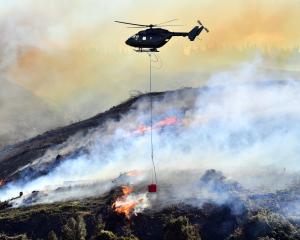The unit - based in the department of women's and children's health within the University of Otago's Dunedin School of Medicine - is asking paediatricians to report all cases of infants and children less than six months of age with microcephaly or other brain abnormalities whose mother, or her partner, has been in a country with active Zika virus transmission during or just before her pregnancy.
Associate Prof Nigel Dickson, an epidemiologist with the New Zealand paediatric surveillance unit, said the monitoring would assess the extent of brain growth issues related to the virus.
"In Brazil, at the end of 2015 there was a marked increase in the number of infants born with microcephaly, a very small head due to poor brain growth. It is now clear the increase was due to mothers being infected by the Zika virus in the early months of their pregnancy,'' he said.
He hoped the monitoring would show the problem was minor within New Zealand.
"I'm interested in doing this to show we haven't got a problem,'' he said.
"My hope is we have a system in place and in a year or two we aren't seeing an excess of this problem.''
The monitoring would take place for the next year or two.
The Zika virus is predominantly spread by the aedes type of mosquito.
While the species most responsible for the spreading the disease - Aedes aegypti - was not in New Zealand, it was present in many parts of the Pacific where the Zika virus had been known exist for several years, he said.
Not only were pregnant women who visited or lived in areas where Zika was prevalent at risk, but also those whose partner had been in such places as the virus can be sexually transmitted.
It was not widely understood how prevalent the disease was but countries such as Fiji, Samoa and Tonga were reported by the European Centre for Disease Prevention and Control as experiencing widespread transmission of the disease.
"While not appreciated at the time, a recent review of the outcome of pregnancies occurring during a large Zika outbreak in French Polynesia in 2013 and 2014 found a marked increase in cases of microcephaly,'' Prof Dickson said.
"Fortunately, only a few of the women infected with Zika had children with this problem.''
Infants were most at risk when their mother contracted the disease within the first trimester, he said.
The monitoring being carried out by the unit was in line with advice from the World Health Organisation.
"It is important that we understand the situation here to make sure that the appropriate advice is given to people who have or are considering visiting the Pacific while pregnant,'' Dr Lesley Voss, an Auckland-based paediatric infectious disease specialist on the study team, said.
Information on the Zika virus and advice for travellers is available on the Ministry of Health website.












